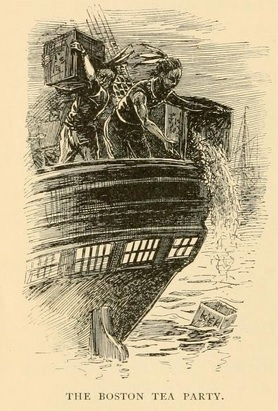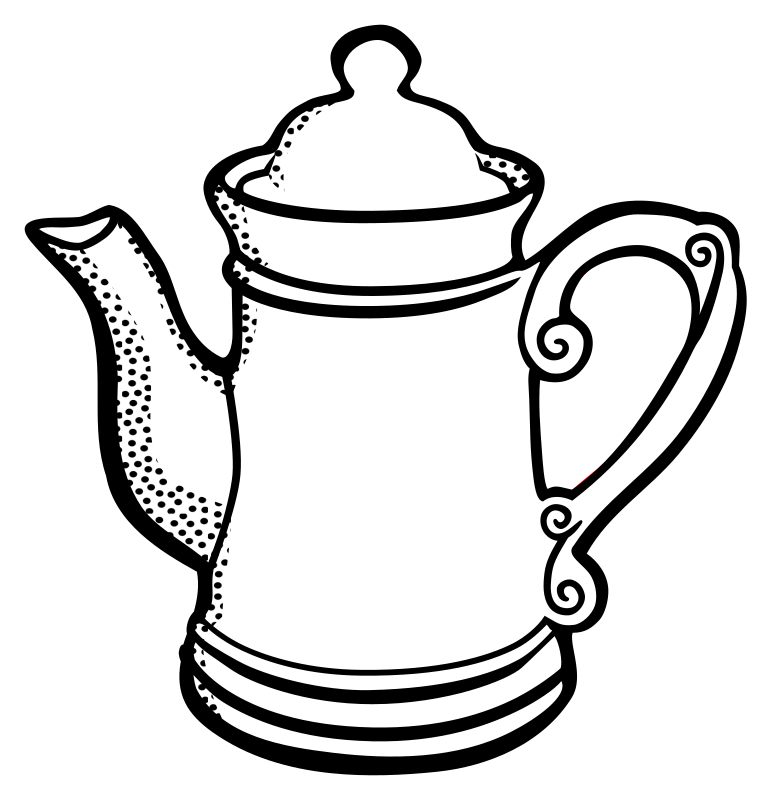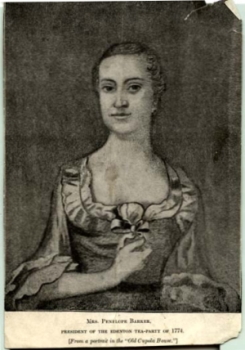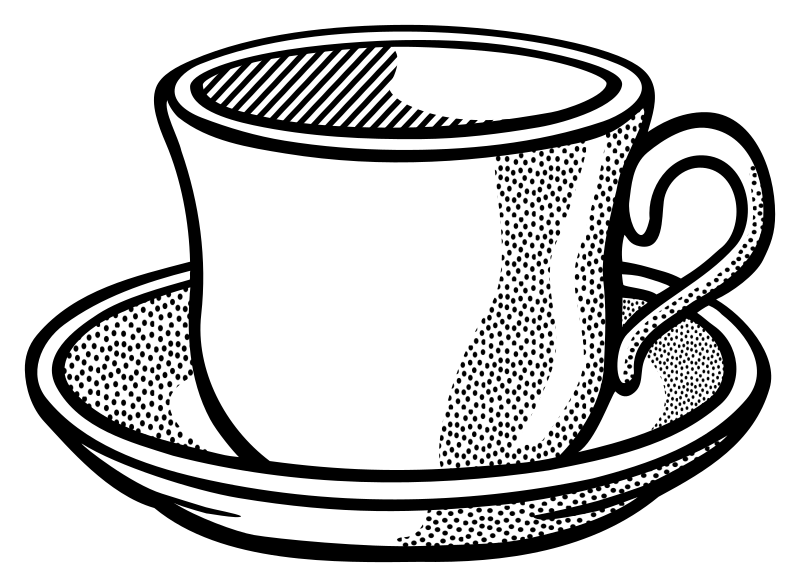The American Revolution
Taxes on Tea and the Tea Act

Another thing that England tried to do was to use tea to profit from America. One way they did this was to set taxes on tea. Collecting tea taxes would bring in more money from the colonies. They also passed the Tea Act in 1773. The East India Company was a business that sold tea. They were a British company that was having some hard times. They had 18 million pounds of tea that needed to be sold. Britain tried to help the company by making the colonists buy East India tea. The company would then sell the tea at a lower price. The price of East India Tea would be lower than the tea from local shops. This made the colonists mad. The colonists decided to stop buying English tea.
In November 1773 ships arrived in Boston. The ships had 342 chests of tea on board. A group of men dressed as Mohawk Indians took some action. They went onto the ships and threw the tea overboard, or off the ships. This was called the Boston Tea Party. Americans from other colonies heard about what happened. They did the same thing. They threw tea off of more ships. The colonists were rebelling against Britain. England was angry about what the colonists were doing. Britain passed more laws to punish and control the colonists.
The colonists looked for ways to avoid the British tea. England tried to force the colonies to buy it. The king sent war ships with more soldiers and cannons to Boston Harbor. More British forces were being sent to control the colonists. When they arrived they had the troops march proudly into the streets. The troops had been sent as a show of British force and strength to the people of Boston.

In one of his letters to Abigail, John Adams spoke about tea. Adams was traveling to the circuit courts for his work as a lawyer. One evening he arrived at a place where he was to stay (Falmouth). He asked if he could get a cup of tea but only if it had been smuggled or if it was not British tea. The colonists were trying not to buy the British tea. The woman said they had decided to stop using tea. She served coffee to Mr. Adams instead.

Women were just as much against using British tea as the men. Penelope Barker was one of those women. She came right out and showed her opposition. In October 1774 she hosted, or held, a tea party in Edenton, North Carolina. At the tea fifty-one women signed a statement that they would boycott tea and other British goods. That meant that they would stop buying and using tea and other British goods. She said, “Maybe it has only been men who have protested the king up to now. That only means we women have taken too long to let our voices be heard. We are signing our names to a document, not hiding ourselves behind costumes like the men in Boston did at their tea party. The British will know who we are.” She was a leader to be remembered. She was courageous and bold, and she even made a poke at the men in Boston for wearing masks. She and her women friends came right out and made their statement. It was in the open, and their names were signed for all to see.

Another thing the colonists did was to make and drink ‘Liberty Tea.’ Liberty Tea was a tea that was made from local herbs and plants. The colonists used basil, spearmint, peppermint, lavender, raspberry plants, roses, violets, and many other things. Liberty Tea helped the colonists boycott British tea.

Reading resources
© Reading-SocialStudiesSolutions
Text Credits:
Colonial Massachusetts, S. E. Dawes, Silver Burdett & Company, 1899, Library of Congress;
http://archive.org/stream/colonialmassachu00dawe#page/n0/mode/2up;
The French War and the Revolution; Sloan, William Milligan; Charles Scribner’s Sons, 1893, 1754-1763;
Young Folks’ History of America, Hezekiah Butterworth, 1895, The Werner Company;
http://archive.org/details/youngfolkshistor00but;
French and Indian War-
http://www.ushistory.org/us/8b.asp;
My Dearest Friend: Letters of Abigail and John Adams by Margaret A. Hogan and C. James Taylor. (John’s letter to Abigail about tea on July 6, 1774);
Not Your Father’s Founders by Arthur G. Sharp (Penelope Barker and the signing of a statement of boycott on British goods by 51 women)(The Tea Act and the East India company)(Liberty Tea);
http://www.ushistory.org/us/9f.asp (Tax on tea and Tea Act);
https://pss.uvm.edu/ppp/articles/liberty.html (Liberty Tea);
https://www.bostonteapartyship.com/tea-blog/liberty-teas-of-colonial-boston ( By Bruce Richardson about Liberty Tea)
Image Credits:
Boston Tea Party from Colonial Massachusetts p 56 by S E Dawes- Silver-Burdett-1899;
Tea Pot-lineart by Frankes- Openclipart.org;
Barker-Penelope - American Revolutionary that led the Edenton Tea Party in North Carolina 1728-1796- Wikimedia Commons;
Tea cup by Frankes -lineart- Openclipart.org
Text Readability:
ATOS- 5.7
Flesch-Kinkade- 6.11
SMOG- 8.58
Notes:




